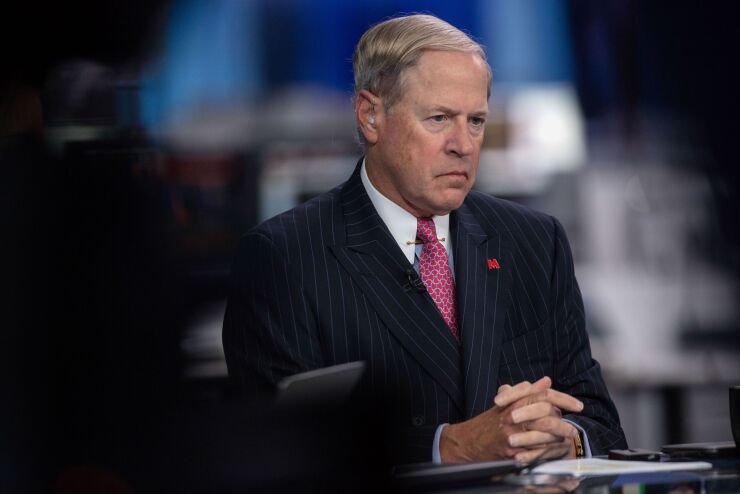Citing what he termed “destructive conduct” by warring factions on the bank's board, a federal district court judge has appointed a custodian to oversee Philadelphia-based Republic First Bancorp.
Judge Paul Diamond ordered the appointment of Alfred Putnam, a prominent Philadelphia appellate attorney, on Friday. Diamond directed Putnam, who serves as senior counsel and chairman emeritus at Faegre Drinker Biddle and Reath, to convene a special meeting of shareholders by July 10 to fill the vacancy on Republic First’s eight-member board created by Director Theodore Flocco’s death in May.
Diamond’s order could lead to a resolution to the long-running contest for control of Republic First, corporate parent of the $5.7 billion-asset Republic Bank, between CEO Vernon Hill, a rival board faction led by Chairman Harry Madonna and two separate groups of activist investors. Currently Hill and two allies on the board can refuse to convene for a meeting, depriving the remaining four directors, led by Madonna, of a quorum. The addition of a director opposed to Hill would end the impasse.
Diamond did not put a time limit on Putnam’s appointment. The judge also suggested Putnam might eventually vote “as a ninth director” to break any deadlock that might ensue after Flocco’s seat is filled. “Whether the custodian may vote … to break any deadlock that follows the election, or whether the board should be expanded to nine members is something the custodian and the parties should consider,” Diamond wrote.

"The judge wants to make sure the company continues to operate," Anat Alon-Beck, a professor of business law at Case Western University in Cleveland, said Tuesday. "When there's a [deadlock] they can't do anything."
Alon-Beck said Putnam would have broad power to act in the company's interest. "The whole point is you're supposed to be there to help them with these issues," Alon-Beck said. "Custodians are going to have authority once they're appointed."
One activist investor group, led by New Jersey insurance executive George Norcross and former TD Bank president and CEO Greg Braca, announced plans to nominate Braca to fill the open seat. In a letter Friday to Republic First’s board, the Norcross-Braca group, which owns nearly 10% of Republic First’s outstanding common stock, stated it expected “that any shareholder be allowed to nominate a qualified candidate and that all nominating shareholders be promptly provided with the necessary and the same information to advance their cause.”
The Norcross-Braca group has been seeking to replace Hill with Braca since late January, citing subpar financial performance and a depressed share price as a result of his management. A second activist group, led by Abbott Cooper, founder and managing member of New York-based Driver Management, has also advocated replacing Hill, along with the possible sale of the company.
Diamond, who serves on the U.S. District Court for the Eastern District of Pennsylvania, criticized Hill and his boardroom allies for claiming rival directors were “seeking to sell Republic First for personal gain to the detriment of the shareholders."
At the same time, Diamond also likened actions taken by the Madonna-led group of directors following Flocco’s death as “oppressive conduct.” Calling themselves the majority directors, Madonna and his supporters ousted Hill as chairman, returning Madonna, Republic First’s founder, to the role he had held from 1996 to 2016, despite lacking a quorum. In his order, Diamond defined a quorum as a majority of the board — or five members.
“It appears that the Madonna faction seeks to wrest immediate control of Republic First by abruptly firing executives and changing management at the very highest levels,” Diamond wrote. Republic First’s “bylaws and articles of incorporation likely do not allow these actions, which are thus ultra vires or unjust. This is oppressive conduct.”
Hill and his allies on the board, Brian Tierney and Barry Spevak, raised no objection to Putnam’s appointment as custodian. In a filing Monday, however, Madonna and his allies filed an objection to the appointment of a custodian, as well as a stipulation that Republic First’s directors, rather than the company, pay the cost for the arrangement.





